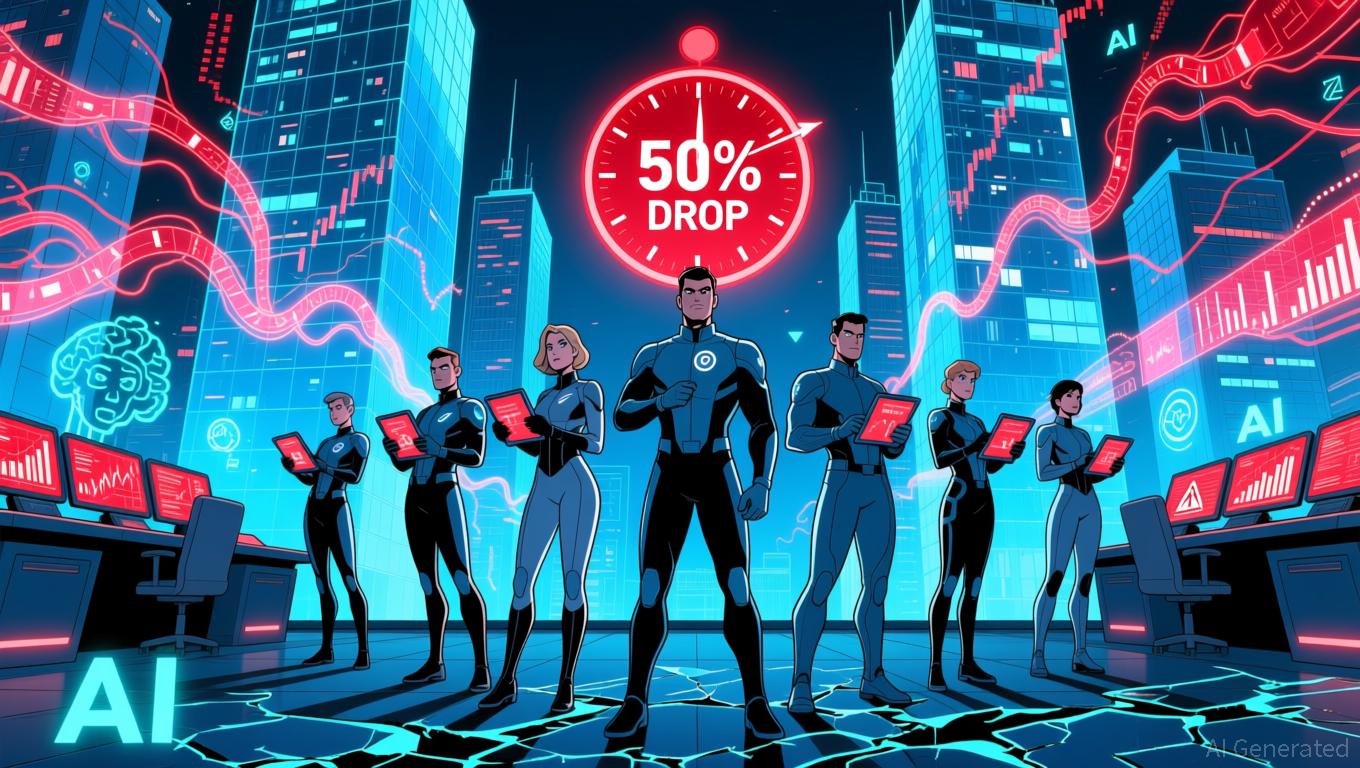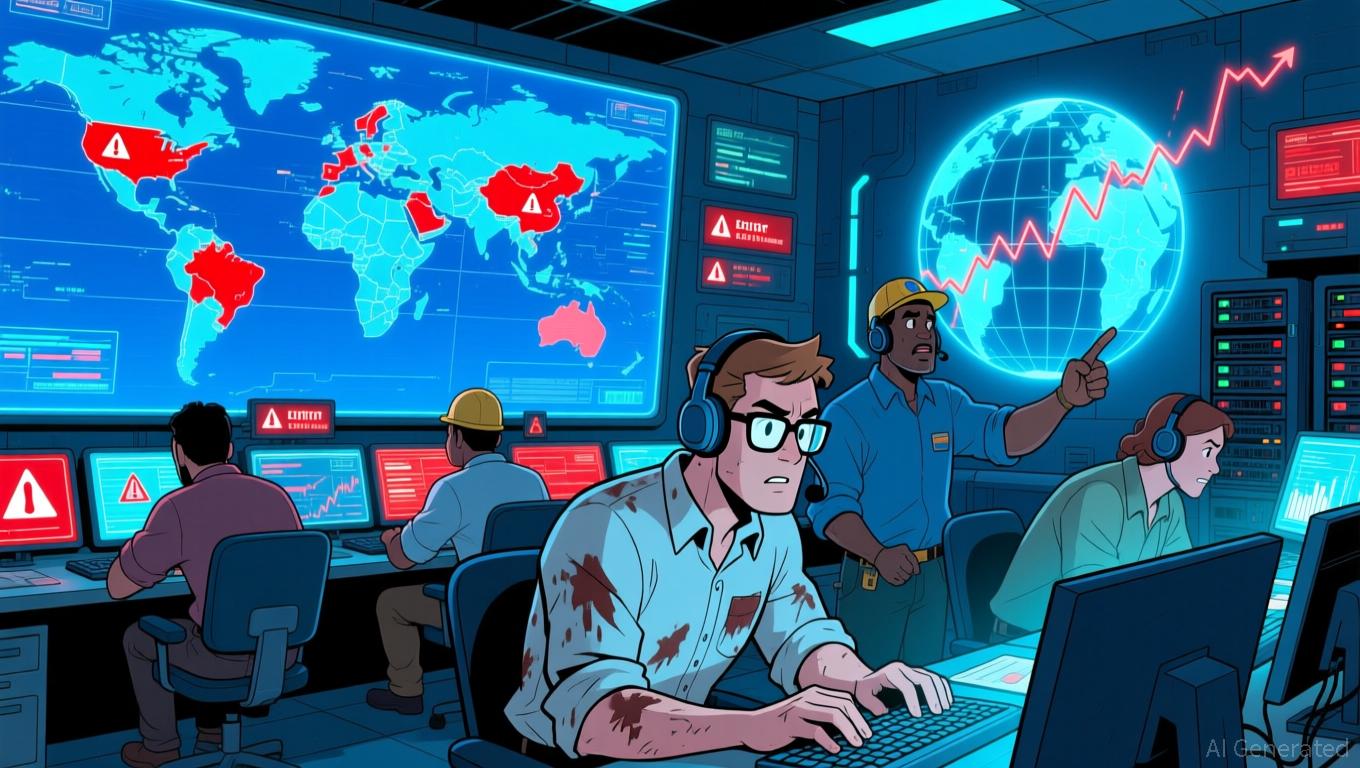The Magnificent 7's Hold on 37% of the S&P: Market Bubble or the New Standard?
- NYU professors Galloway and Damodaran warn of a "bubble" in the Magnificent 7 tech stocks, which control 37% of the S&P 500's value. - They highlight unsustainable AI-driven valuations, with Nvidia's $1T revenue projection requiring 80% perpetual gross margins deemed unrealistic. - Market volatility grows as S&P 500 faces its longest losing streak since 2025, while alternative assets like trading cards gain traction amid investor caution. - AI optimists counter that robust cash flows and cross-industry i
Scott Galloway, a marketing professor at NYU Stern and a business founder, has sounded a serious alarm regarding the U.S. economy, predicting either a significant market downturn or social unrest within the next year. On a recent episode of his Prof G Markets podcast, Galloway stated that the ongoing surge in stocks driven by AI is not sustainable, noting that the "Magnificent 7" tech giants—Alphabet,

Galloway's warnings echo those of NYU finance professor Aswath Damodaran, who has advised investors to look at unconventional assets such as baseball cards to help protect their investments. Damodaran, recognized for his prudent valuation strategies,
These cautions come as anxiety grows in the financial sector.
Despite the negative outlook, AI advocates remain optimistic. Bill Ford, CEO of General Atlantic, and Philippe Laffont of Coatue Management—who oversee $118 billion and $71 billion in assets, respectively—
As markets fluctuate, alternative assets are becoming more popular.
The discussion about AI's economic impact also touches on regulatory and ethical issues.
As these challenges unfold, the warnings from Galloway and Damodaran highlight a broader change in investor attitudes. With
Disclaimer: The content of this article solely reflects the author's opinion and does not represent the platform in any capacity. This article is not intended to serve as a reference for making investment decisions.
You may also like
Millionaire Dave Portnoy grabs $1 million in XRP after missing god candle

Centralized Web Vulnerability: Cloudflare Disruption Impacts 20% of Traffic, Alarming Investors
- Cloudflare's 2025 outage disrupted 20% of global traffic due to a configuration error, affecting major platforms like X and Spotify . - Shareholder Baillie Gifford reduced its stake by 14.4% amid valuation concerns, selling $781.5M worth of shares. - The incident triggered a 3.9% stock drop, highlighting investor fears over operational resilience and systemic risks. - Critics warned of centralized infrastructure vulnerabilities, urging redundancy measures like multi-CDN architectures. - Cloudflare pledge

ZK-Technology's Rapid Rise: Advancements in Blockchain Scalability and Signs of Growing Institutional Embrace
- Zero-knowledge (ZK) technology is accelerating blockchain adoption through scalability breakthroughs, with ZK rollups processing 10B+ Ethereum transactions and achieving 15,000 TPS. - Institutional giants like JPMorgan , Goldman Sachs , and Deutsche Bank are deploying ZK-based systems for secure settlements and tokenized asset management, signaling mainstream validation. - ZK infrastructure now supports $3.5B TVL across platforms like ZKsync and StarkNet, with Ethereum's zkEVM upgrade attracting $200M in
Astar (ASTR) Price Rally: Blockchain Integration and the 2025 DeFi Revival
- Astar (ASTR) surges in 2025 due to on-chain adoption and DeFi renaissance, driven by Agile Coretime upgrades and institutional investments. - Q3 2025 saw 20% active wallet growth and $2.38M TVL, contrasting with broader DeFi’s decline, highlighting Astar’s liquidity resilience. - Strategic partnerships with Web2 giants boost ASTR’s real-world utility via loyalty programs and decentralized identity solutions. - Astar 2.0’s 150,000 TPS cross-chain interoperability bridges Ethereum , Polkadot , and Binance,